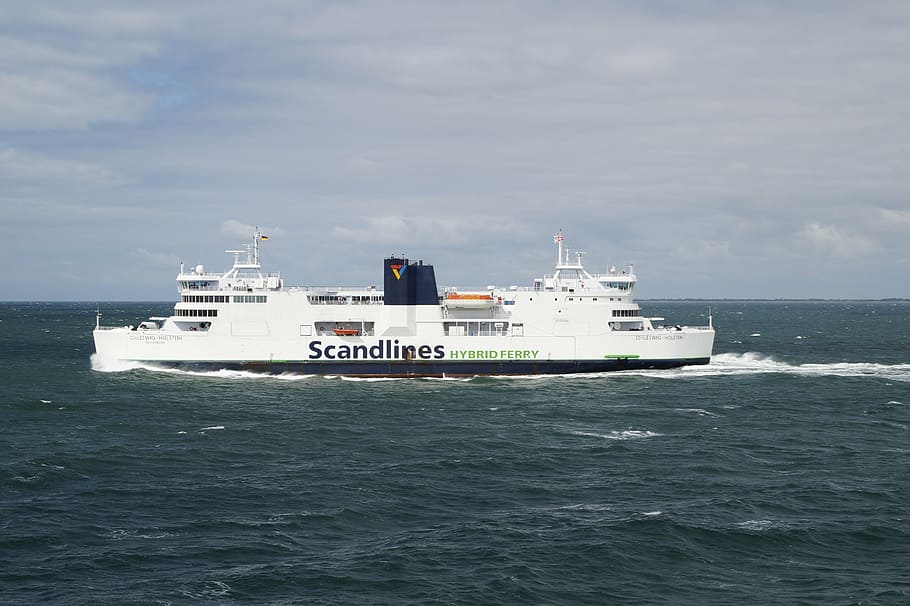
Scandlines Hybrid Ferry by PxHere, CC0
| Zero Emission Shipping Project | |
|---|---|
| Name: | Process of Alternative Design Approvals (PADA) |
| Start/End Date: | October 2023-August 2024 |
| Project Status: | Completed |
| Point of Contact: | Mette Festersen Jensen (DMA) |
| Pillar: | Ships |
This project focused on the Flag state approval of ship with an alternative design. Today, if ship owners want to build or retrofit a ship to use either Ammonia or Hydrogen for propulsion an alternative ship design is the way forward because the IMO regulation for ships using these fuels is not yet in place.
Project Objective:
Launched in May 2023, this project facilitated a series of workshops with the aim to share experiences and insights on alternative vessel designs in the absence of prescriptive rules with the aim of supporting first movers. 10 flag states and 6 classifications societies are participating in the workshops. The majority of Zero-Emission Shipping Mission members participated in the project.
Project Milestones:
- The project on the Process of Alternative Design Approvals project facilitated a series of structured workshops in 2023.
- Engagement with Industry stakeholders such as ship owners, ship designers, shipyards etc.
- Launch of the project insights report by the end of 2023.
Leading Members:
Danish Maritime Authority, Mærsk McKinney Møller Center for Zero Carbon Shipping
Project Participants:
US Coast Guard, Maritime and Port Authority of Singapore, Korean Ministry of Oceans and Fisheries, German Federal Ministry for Digital and Transport, Australian Maritime Safety Authority, Norwegian Maritime Authority, Transport Canada, UK Maritime and Coastguard Agency, Japan Maritime Bureau, MLIT, Class NK, DNV, Korean Register, Lloyd’s Register, ABS, Bureau Veritas
Results:
The Project contained a series of workshops focusing on the flag state approval of alternative vessel designs with a concrete case on an alternative design process for ammonia-fueled vessels.
Three workshops were held during May and June 2023. The first workshop focused on project introduction and a general exchange among the participants on the alternative design approval process based on IMO MSC1./circ 1455. The second workshop was in-person in London with a focus on knowledge sharing with focus on learnings from projects, and key ship design aspects of an alternative design approval process. The workshop also included a deep dive on tools and methodology relevant to the process. The third workshop followed up on the discussions from the first workshops and highlighted further areas for knowledge sharing and alignment.
10 Flag states and 6 classification societies participated in the workshops.
Key insights from the project workshops
- The IMO MSC.1/circ. 1455 Guidelines for the approval of alternatives and equivalents as provided for in various IMO instruments provides a good and robust baseline for an alternative approval process. However, the guidelines in MSC.1/circ. 1455 can also be characterized as complex, resource demanding and time consuming in comparison with a standard flag state approval process. All stakeholders need to be aware of this when beginning an alternative design approval process. In response to this, Flag states and classification societies have developed individual processes to ease and supplement the utilization of the IMO guidelines for alternative design approval process.
- The flag states and classification societies highlighted that they prefer to be involved early in the alternative design process and to be involved and consulted throughout the process while at same time remaining impartial to ensure separation from approval.
- The design team and risk assessment facilitator in the alternative design process should be competent within the area of focus in the preliminary design start-up phase and throughout the analysis and review phases. This is especially important when dealing with new fuel technologies.
- A risk assessment provides insights, but not definitive answers. The timing of risk assessments is very important, because if the assessment is performed at a later stage than the design process, there is less opportunity to impact the design. Early initiation discussions about the design team and involvement of relevant stakeholders such as port states are key to a successful process.
- Further guidance is required on what a gas dispersion analysis should entail in terms of scenarios and acceptance criteria. Harmonization of safety criteria between classification societies is encouraged.
- The use of ammonia as a fuel needs a holistic analysis with consideration of engineering, operational and administrative risks for ensuring an equivalent level of safety as compared to conventional fuels.
The findings are not attributed to any organization or participant nor do the insights substitute any class or flag state approval. Knowledge sharing on the approval of alternatives designs continues at an ad-hoc basis between flag states and classification societies.